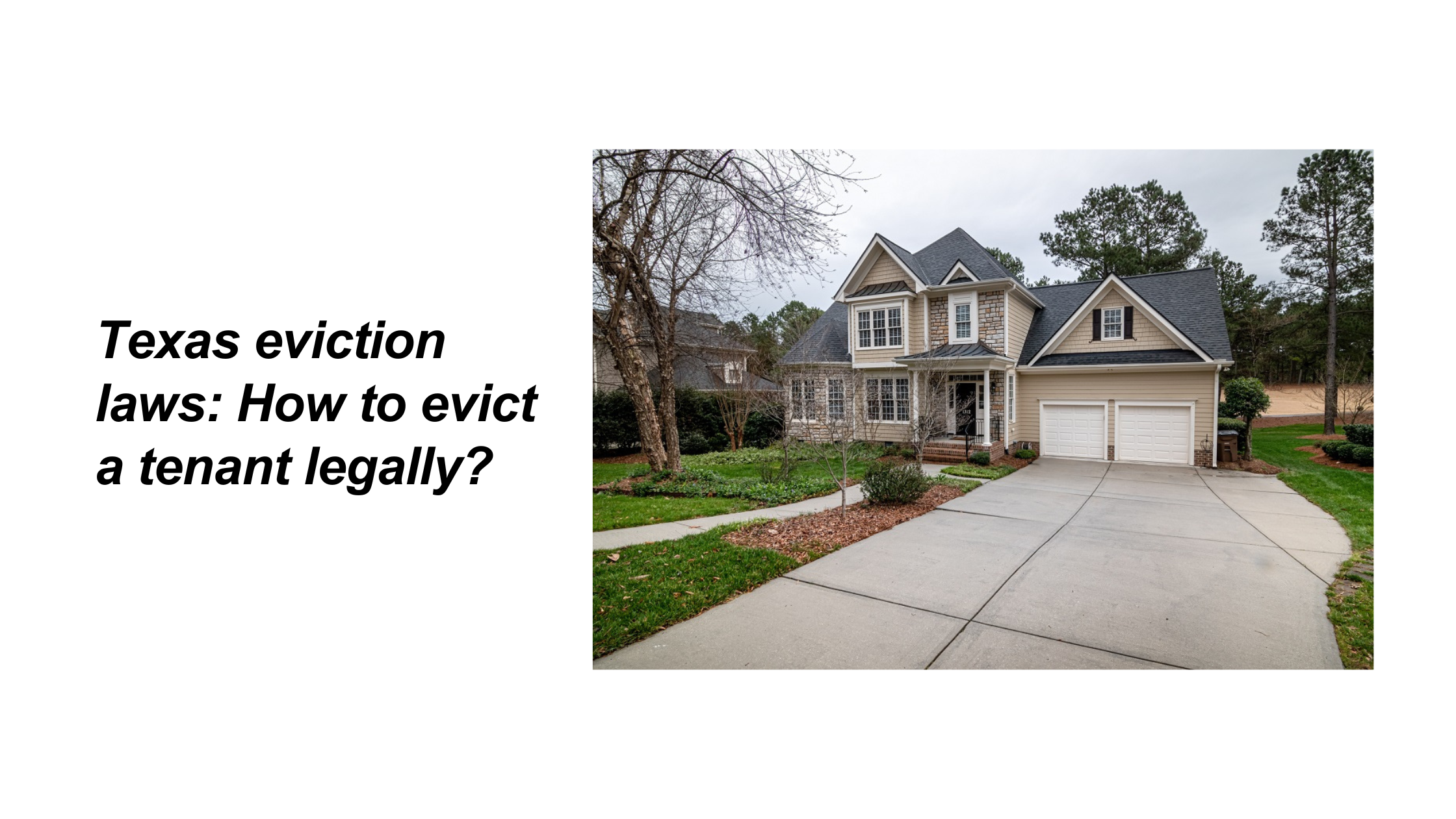Texas eviction laws: How to evict a tenant legally?
RH Business Marketing Solutions
Embarking on the path of eviction is a challenging journey for landlords, requiring a nuanced understanding of Texas eviction laws to navigate the process legally. From lease violations to non-payment of rent, knowing the steps involved is crucial for a smooth and lawful eviction. In this guide, we'll break down the complexities, providing landlords with a comprehensive overview of the steps to take when faced with the need to evict a tenant in the Lone Star State. Let's unravel the legal intricacies and ensure a clear roadmap for landlords seeking to protect their property rights within the bounds of Texas law.
Review the Lease Agreement
Before initiating the eviction process, thoroughly review the lease agreement. Ensure that you have grounds for eviction based on violations explicitly outlined in the lease, such as non-payment of rent, property damage, or other lease violations. Clear documentation is crucial to building a solid case.
Provide Written Notice
Texas landlord-tenant law requires landlords to provide written notice to tenants before filing for eviction. The notice required varies according to the grounds for eviction. For non-payment of rent, landlords must give a three-day notice, specifying the amount due and providing a three-day grace period for payment. For other lease violations, landlords generally provide a 30-day notice, allowing tenants time to rectify the issue or vacate the premises.
File an Eviction Petition
If the tenant fails to comply within the notice period, the next step is filing an eviction petition with the justice of the peace court in the precinct where the property is located. The petition should include details of the lease agreement, the violation, and the notice served to the tenant. Filing fees and court costs will apply.
Serve the Tenant with Summons
After submitting the eviction petition, the court will generate a summons. This document notifies the tenant of the lawsuit and provides details about the court date. The summons must be served to the tenant, either by a sheriff, constable, or a private process server. Proper service is critical for a valid eviction case.
Attend the Eviction Hearing
Attendance at the eviction hearing is mandatory for both the landlord and the tenant. The judge will hear from both parties and examine the evidence submitted. If the judge rules in favor of the landlord, they will issue a judgment for possession, allowing the landlord to regain control of the property.
Writ of Possession
After winning the eviction case, landlords may need to obtain a writ of possession from the court. This document authorizes law enforcement to physically remove the tenant and their belongings if they refuse to vacate voluntarily. Landlords must coordinate with the sheriff's office to execute the writ.
Recovery of Unpaid Rent
While the eviction process primarily addresses possession of the property, landlords can pursue a separate action to recover unpaid rent and other financial losses. This can be done through the small claims court or through a collections agency.
Understanding Retaliatory Eviction Laws
Texas law prohibits retaliatory eviction, where landlords attempt to evict a tenant in response to the tenant exercising their legal rights, such as reporting code violations. Landlords should be cautious and ensure that eviction actions are based on valid reasons outlined in the lease agreement.
Legal Assistance
Navigating the eviction process in Texas can be complex. Landlords may seek legal advice or representation, especially if faced with a contested eviction. Consulting with an attorney experienced in landlord-tenant law can help ensure that the eviction is conducted legally and efficiently.
Learn from the Experience
After the eviction process is complete, landlords should reflect on the experience. Consider whether any adjustments can be made to lease agreements, tenant screening processes, or property management practices to prevent future issues. Continuous improvement is key to maintaining successful landlord-tenant relationships.
Conclusion
Evicting a tenant in Texas involves a series of legal steps that must be followed meticulously. From providing written notice to attending court hearings, landlords must adhere to the established procedures outlined in Texas eviction laws. By understanding the process and seeking legal advice when needed, landlords can navigate the eviction process efficiently and in compliance with the law, ensuring the protection of their property rights in the Lone Star State.
